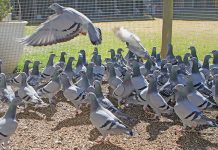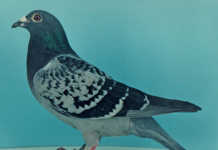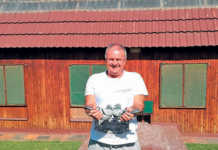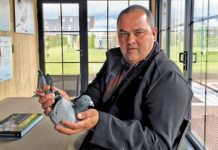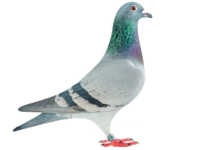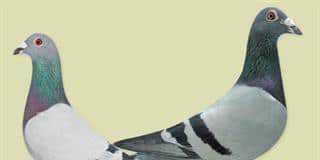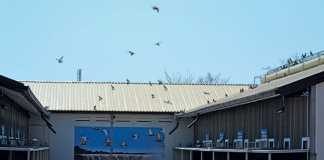The Praeg family has been involved in pigeon racing for three generations. Dr Bertus Praeg’s grandfather, Hans, clocked his first winner in 1911 in a race from Noupoort to Braamfontein. And Bertus’s father, master breeder Frans Praeg, introduced him to the sport.
What kindled your interest in the use of pigeon manure as fertiliser?
Starting in 2008, we began considering the possibility of collecting pigeon droppings from the estimated 6 000 pigeon fanciers throughout South Africa. Establishing a business around pigeon manure as an unequalled, sustainable organic fertiliser would see fanciers compensated for the droppings they collected, thereby enabling them to make some money out of their hobby.
Between 2008 and 2012, extensive research was done regarding the qualitative properties of pigeon droppings and laboratory tests and field experiments were conducted. But pigeon fanciers themselves could testify to the high quality of their feathered friends’ droppings.
Racing pigeon organisations were mobilised in 2011. Except for the Eastern and Western Cape, all the provinces are now covered in terms of collection. Manufacturing is guided by advice from the Agricultural Research Council and Pretoria University’s Faculty of Veterinary Sciences (Onderstepoort).
What’s so special about pigeon manure?
Pigeon droppings head the list of animal manure in terms of their macro- and micronutrient properties. For instance, they are three times more valuable than chicken manure, six times more valuable than earthworm compost and eight times more valuable than cattle manure. They have a very good carbon/nitrogen ratio, and could be described as an ‘aggressively-friendly’ fertiliser.
Furthermore, it could be said that pigeon manure fulfils the permaculture principle whereby every element should serve many functions. Among other properties, pigeon manure will help with poor soil fertility. It doesn’t leach into groundwater and one application is sufficient for six to nine months of microbial activity. It’s odourless, and can be stored for months.
Depending on the feeding regime of the pigeons, the nitrogen content can range between 5% and 7%. Unlike chicken manure, there’s little free urea in pigeon droppings. Therefore, the nitrogen is released more slowly. (Note: pigeons aren’t classified as poultry; special ordinances protect them.)
Are there any health risks associated with pigeon manure?
Pigeon manure health risks are rated as ‘non-significant.’ Scientific studies indicate that pigeons can’t be infected with avian influenza and cannot spread it, for example. The truth is the faeces of dogs and cats is more likely to contain pathogens harmful to humans. Indeed, a case could be made that pigeon manure is one of the most ‘hygienic’ of all manures.
What are your plans going forward?
When considering pigeon manure fertiliser as a niche fertiliser in relation to other organic fertilisers, the question remains: there might be a gap in the market, but are there markets in the gap? Ultimately, our dream for this project is to aid the sport financially, boost interest in South Africa’s pigeon fraternity, and enhance fanciers’ contribution to the organic-driven green revolution.
Highly prized
- Pigeon manure was particularly popular in Persia (now Iran), where they kept pigeon houses solely to ‘produce’ droppings. The fertiliser was used for melon crops.
- In the 1600s, King George I of England decreed all racing pigeon droppings property of the Crown, and lofts were policed to enforce the law! Why? Pigeon manure was used in making gunpowder.
- Pigeon manure was so highly prized as a fertiliser in France during the 1800s it was often given to newlyweds as a wedding gift.
Fanciers seeking more information about the project can contact Dr Praeg on 079 505 3516, or at [email protected].
Contact Thomas Smit on 011 680 4778 or at [email protected]. Please state ‘Pigeons’ in the subject line of your email.


